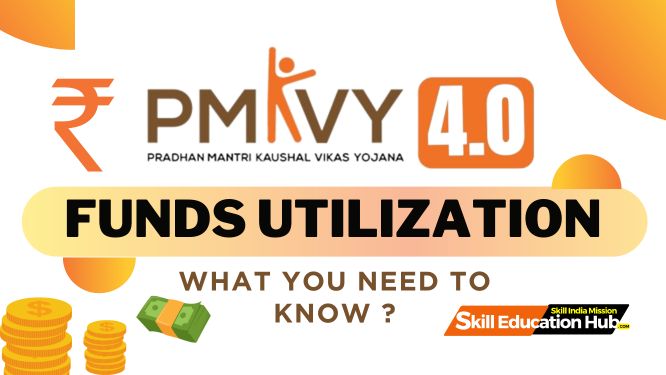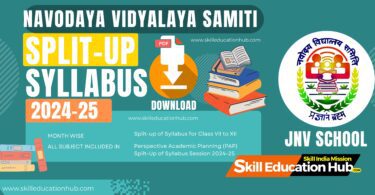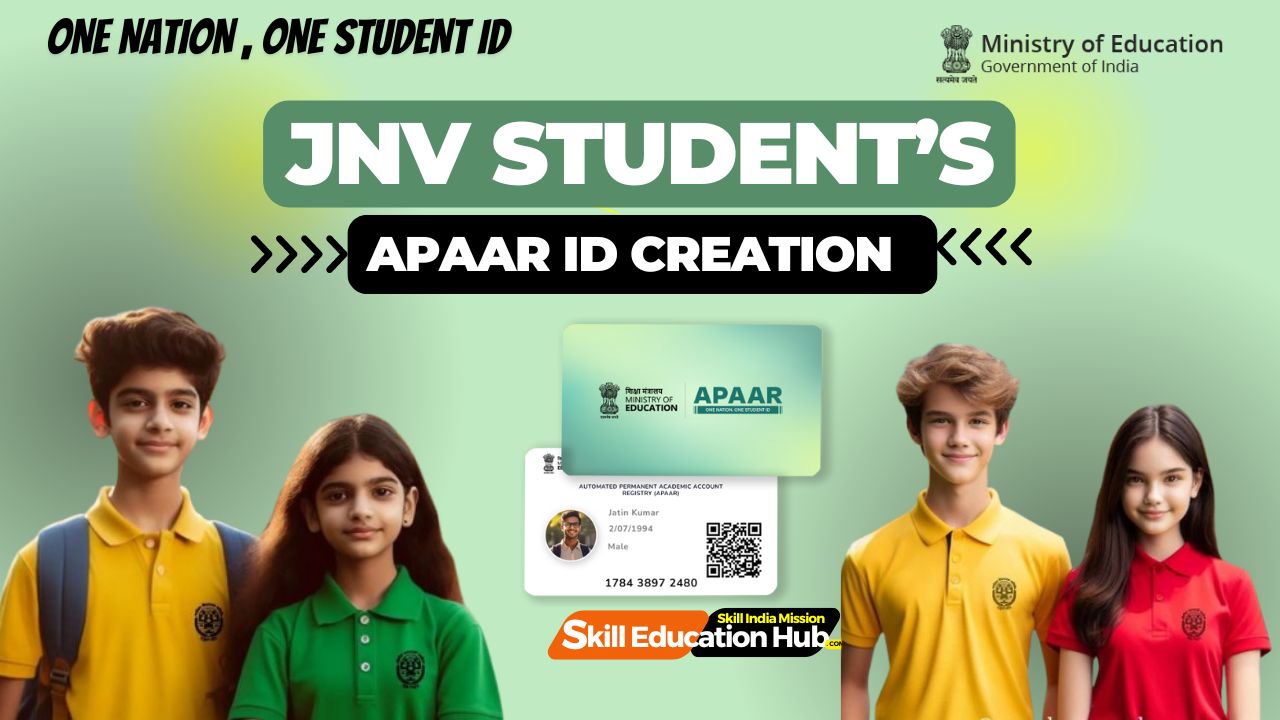The objective of the scheme is to create a supportive environment for young people to develop skills and choose a career path that matches their abilities and goals. This will be achieved by providing skill training that is market-oriented and driven by demand, making the existing skilling system more adaptable and responsive to changing needs. The scheme also aims to modernize the skill ecosystem by utilizing technology, innovative financing, and digitalization.

The Skill Hub Initiative is one such innovative approach implemented as per the guidelines under Pradhan Mantri Kaushal Vikas Yojana 4.0.The scheme envisages to give leverage to existing infrastructure of the school after school hours as ‘Skill Hub’ focusing on the introduction of skill training program in the education ecosystem to actualize the intent of NEP 2020 which mentions at least 50% of learners shall have the exposure to Skill Education by 2025. The Skill Hubs shall primarily be nodal skill centres identified to provide skill development and vocational training opportunities to target population segments from in-school students of Class 9th to 12th, school dropouts and out-of-education candidates.
Under this scheme, the school infrastructure, in general and Skill Education infrastructure, in particular can be used optimally after the school hours, on weekends, holidays, summer vacations, etc. This initiative will give school recognition in the neighbourhood.
The ‘Skill Hubs Initiative’ under PMKVY 4.0 aims at creating shared infrastructure,
aligned with the needs of the local economy which addresses the vocational training
needs of all target segments. It is also expected that existing resources in education
and skilling system can be put to optimum usage by utilization for skilling beyond
normal working hours and during weekends.
a. Provision of permanent vocational infrastructure and resources for skillin
b. To ensure contiguous availability of skill centres for ease of candidates
c. Introduce vocational learning at an early stage
d. Provide vocational offerings for target segments
Skill Hub Initiative (SHI) under PMKVY 4.0
In accordance with the Guidelines issued by the Ministry of Skill Development and Entrepreneurship in the current session 2024-25, CBSE Schools have been onboarded as skill hubs for providing Skill training to School/College dropouts, out of education and unemployed youth and for internal candidates of CBSE Schools in the age group 15-45 years under PMKVY 4.0 scheme.

“Funds for the implementation of PMKVY 4.0 are to be met out of the budgetary grant allocated for the scheme.”
| Sl. No | Type of Training | Per Candidate Cost (In Rs.) |
|---|---|---|
| a. | STT courses of 300-hour duration | Rs. 9,540 |
| b. | STT courses of 450-hour duration | Rs. 13,724 |
| c. | STT in Skill Hubs | Rs. 9,540 |
| d. | RPL with upskilling (30 Hours) at any Accredited and Affiliated training center(s) | Rs. 3,126.18 |
| e. | RPL with upskilling (30 Hours) at Industry premises | Rs. 2,826.18 |
| f. | RPL with upskilling (60 Hours) at any Accredited and Affiliated training center(s) | Rs. 3,962.88 |
| g. | RPL with upskilling (60 Hours) at Industry premises | Rs. 3,662.88 |
This table provides a clear breakdown of the per candidate cost for different types of training under PMKVY 4.0, including STT courses of varying durations and RPL with upskilling programs

| Sl. No. | Break-up of Basic Training Cost | Estimated Cost under Skill Hub (in Rs.) |
|---|---|---|
| 1 | Salary of Trainers | 2,40,000 |
| 2 | Guest Lecture | 24,000 |
| 3 | Course Handbook/s | 24,000 |
| 4 | Raw Material | 60,000 |
| 5 | Training Aid (Internet, Chalk, chart papers, office stationery etc.) | 12,000 |
| 6 | Provision for Maintenance of Tools | 30,000 |
| 7 | Provision for Infrastructure Wear & Tear | 24,000 |
| 8 | Provision for Training of Trainers | 10,000 |
| 9 | Industry Visit Expenses | 48,000 |
| 10 | Electricity Expense | 24,000 |
| 11 | Provision for Counselling | 12,000 |
| 12 | Supervisory Teacher and Housekeeping | 96,000 |
| 13 | Mobilization Expenses | 1,20,000 |
| Total Cost | 7,24,000 | |
| Estimated Candidates Catered | 120 | |
| Per Candidate Basic Cost (rounded-off) | 6,000 | |
| 14 | Assessment Cost | 36,000 |
| 15 | Reward Money | 60,000 |
| 16 | Post Certification Monitoring | 60,000 |
| Total Operational Cost (per Candidate) | 7,300 |
Note:
- MSDE may provide financial assistance to select candidates opting for entrepreneurship/self-employment under existing programs.
- Reward Money may be deposited directly to the beneficiary candidate using AEPS.
- The costing is applicable for an average batch size of 30 candidates, with a maximum of 40 candidates.
- Conveyance cost is payable to persons with disabilities (PwDs) and Transgenders.
a. All CBSE affiliated schools shall be eligible to participate in the scheme.
b. The institutions who are running relevant Skill courses will be given
approval on priority.
c. All selected schools will have to comply with the norms as specified in
the Guidelines and decided by the Government from time to time for
implementation of the scheme
a. Short Term Training with 300 hours
(Including Skill Hubs)
| Sl. No. | Training Head | Cost (in Rs.) | Remarks |
|---|---|---|---|
| 1 | Base Training Cost for 300 hrs | 8,366 | @ Rs. 27.89 per hour |
| 2 | Assessment & Certification | 600 | Minimum as per common norms |
| 3 | Uniform, Induction Kit, Participant Handbook | 500 | |
| 4 | Accidental Insurance | 14.16 | Insurance for only one year + taxes |
| 5 | AEBAS – Transaction Fees | 10 | |
| 6 | Tracking Allowance | 50 | |
| Total | 9,540.16 |
| Sl. No. | Training Head | Cost (in Rs.) | Remarks |
|---|---|---|---|
| 1 | Base Training Cost for 450 hrs | 12,550.50 | @ Rs. 27.89 per hour |
| 2 | Assessment & Certification | 600 | Minimum as per common norms |
| 3 | Uniform, Induction Kit, Participant Handbook | 500 | |
| 4 | Accidental Insurance | 14.16 | Insurance for only one year + taxes |
| 5 | AEBAS – Transaction Fees | 10 | |
| 6 | Tracking Allowance | 50 | |
| Total | 13,724.66 |
These tables provide a breakdown of the costs associated with Short Term Training (STT) programs of 300 hours and 450 hours, including expenses for training, assessment, certification, insurance, transaction fees, and tracking allowance.
Funds will be released to NSDC on receipt of detailed proposal seeking funds towards:
| Sl. No. | Particulars | Coverage | Paid directly to | Amount (in Rs.) |
|---|---|---|---|---|
| 1. | Basic Training Cost | All candidates | Training Provider / Skill Hubs | As per rationalised hourly base cost (Rs. 27.89/hour) |
| 2. | Assessment & Certification Cost | All candidates | SSCs | Rs. 600 per assessment per candidate |
| 3. | Uniform, Induction Kit, Participant Handbook | All candidates | Vendor | Maximum up to Rs. 500 per candidate |
| 4. | Cost for Boarding and Lodging | Women, PwDs, Special Areas, Aspirational, Border, Tribal, LWE affected districts | Training Provider | As per Common Norms |
| 5. | Conveyance Cost/Transportation Cost | Women and PwDs in non-residential training | Candidate | As per Common Norms |
| 6. | Additional Support to PwD Candidates | All PwD candidates | Training Provider | Rs. 5,000/- towards assistive devices, aid, and appliances |
| 7. | Accidental Insurance with one year of coverage | All candidates | Insurance company | As per prevalent rates (Rs. 14.16) |
| 8. | AEBAS – Transaction Fees | Candidates, Trainer, and Assessor | NSDC / NIC | Upto Rs. 10 per user |
| 9. | Post-certification Tracking Allowance | All Candidates | NSDC | Rs. 50/- per certified candidate |
| 10. | Training of Trainers (ToT) | Trainers | Training Provider | As per Para 3 of Chapter VII |
| 11. | Training of Assessors (ToA) | Assessors | Training Provider | As per Para 3 of Chapter VII |
This table provides a comprehensive breakdown of the various expenses covered under the PMKVY 4.0 FUNDS, including training costs, certification, insurance, additional support for PwD candidates, and other allowances.
| Tranche | Percentage | Condition |
|---|---|---|
| Tranche 1 | 30% | On commencement of training |
| Tranche 2 | 30% | On batch achieving 70% AEBAS attendance once and 50% of the training is over |
| Tranche 3 | 40% | On Certification (passed candidates only) |







